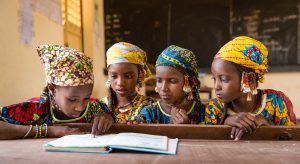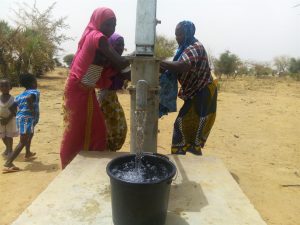By Kayleigh Redmond
Research has shown that investing in the economic and educational success of women is vital to the development of any nation. Women typically funnel a larger percentage of their income back into their communities than men and obstructing their potential contributions only delays financial growth. Educating and empowering women in Niger can strengthen the country as a whole, but historically, Nigerien women’s educational access has been limited.
Around 76 percent of Nigerien girls are married before their 18th birthday, and many have had their first child by that age. As of 2019, the average birth rate is around seven children per woman. Raising a large family and having extensive domestic responsibilities severely limit a woman’s chances of gaining independence both financially and personally.
Starting a family at such a young age prevents girls from pursuing an education. Many have to drop out when their family members arrange marriages for them because their new duties as a wife and mother are deemed more important. Only 54 percent of female primary students reach the sixth grade, and only 14 percent of women are literate.

Source: Global Partnership for Education – GPE
Conversely, women who complete their education are less likely to marry and start a family young. They are able to earn higher incomes, contribute to the local economy, and have a seat at the table in decisions that affect their lives. Educated women are also able to act as role models for their daughters and other young girls in the community and can encourage them to continue breaking the cycle of poverty and oppression.
Having more educated women in the job market can greatly improve Niger’s overall stability. Bolstering women’s education means lower birth and poverty rates, which alleviates the burden of overpopulation and allows for more citizens to contribute to the development of their communities. A 2019 study from the World Bank Group states that reducing gender inequality in education and the workforce could increase Niger’s per capita GDP by nearly a third by 2030. By enabling women to gain an education, have less children, and earn the same salaries as men, Niger would be setting all of its citizens up for success.

Source: Wells Bring Hope
One of the first steps in making education more accessible to girls and women is reducing the amount of time-consuming domestic chores that they are responsible for. It can take hours to collect water from miles away, leaving girls unable to attend school. Wells Bring Hope provides reliable and easy access to safe drinking water, significantly reducing the amount of effort needed. This work is vital in strengthening the position of girls and women in Nigerien society by allowing them the time to pursue better lives for themselves, and ultimately better lives for all Nigeriens.
Sources:
https://www.oecd.org/dac/gender-development/investinginwomenandgirls.htm
https://data.unwomen.org/country/niger
https://www.usaid.gov/niger/education
https://data.worldbank.org/indicator/SP.DYN.TFRT.IN?locations=NE


